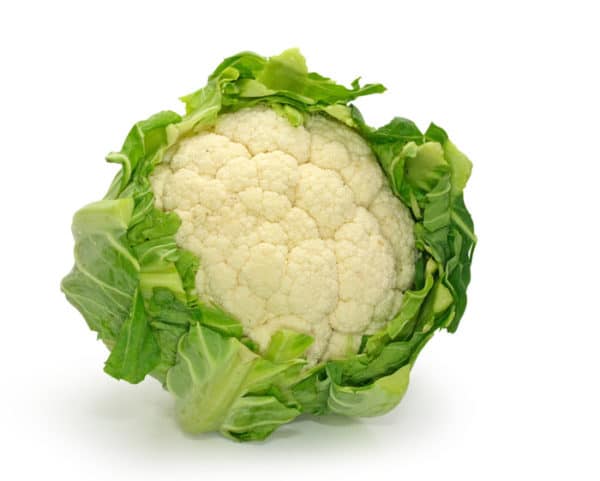

What does it mean for you?
Let’s start with a short history on what gluten is.
Gluten is a protein found in wheat, rye, barley, spelt, and kamut, and it’s questionable about oats. It’s in grains, but not all grains. There are non-gluten grains.
The word “gluten” comes from the Latin “gluten”, meaning glue, which is appropriate since gluten is a very gluey substance. When you eat things that contain gluten, it causes a type of glue-like mass to form in your intestinal tract. That’s one of the many good reasons to stop eating it.
When you eat the gluten in these grains, it can cause health problems. Digestive disorders, depression, migraines, ADHD, autism, obsessive compulsive disorder, schizophrenia, balance problems, epilepsy, inability to concentrate, autoimmune thyroid disease, and dermatitis are amongst the many disorders that have now been linked to gluten intolerance.
It’s kind of scary that one small protein can wreak so much havoc. Gluten works its mischief in several ways.
One is by triggering autoimmune responses, another is by causing malabsorption of nutrients, and the third is through activation of opioid receptors in the brain.
Opiates in Gluten
You know that “once I start I can’t stop” feeling that many people have about bread and other baked goods? That feeling is actually similar to a cocaine addiction. And it’s caused by gluten. Some of the peptides that result from the digestion of gluten are powerful opiate-like compounds, known as gluteomorphines.
One of the complaints I hear when people embark upon a gluten-free diet is that the cravings are so intense.
This can be explained by the reaction of the opioid receptors to sudden withdrawal of the opioids. Now left unbound they are starving for more, similar to the mechanism found in drug, alcohol, and nicotine withdrawal, and cravings result.
Gluten Effects on Your Immune System
Gluten is a problem if you have sensitivity to it because it causes an immune system reaction. Immune system reactions to gluten are very widespread, and much more common than you may think.
Your immune system is your body’s protective force. It’s an army that protects you from invaders. If you have a sensitivity to gluten, your immune system perceives gluten as an invader and mounts an incredible attack, so it can take the protein that’s in the gluten – gliadin – and demolish it as if it were a bacteria or microbe that’s going to harm you. In the process of doing that, it creates inflammation. The inflammation is what causes the immune system reaction that gluten is known for. Gluten causes wide-spread inflammation throughout your body.
A little bit of knowledge about how the immune system works really helps in understanding how this gluten problem affects you.
Bacteria are made of proteins. Foods have protein in them. Both these proteins have little amino acids that run throughout them. What the immune system does is create antibodies that will attack the protein it feels is an invader.
It’s like a lock and a key. You may have a whole set of keys, but you can only get one key to open a particular door. You can try them but if they don’t look exactly alike, they won’t go in that keyhole. The immune system creates these little antibodies that are very specific for specific proteins. Unfortunately, they’re not as specific as our keys.
If there is a similarity between the protein in gluten – gliadin – that the antibody is attacking and some of the proteins in your thyroid gland, the antibody created to attack the gliadin then attacks your thyroid gland. That causes the thyroid to become swollen and inflamed. It can’t produce thyroid hormones, which in turn affects your metabolism. That causes all the symptoms of hypothyroidism.
That’s what’s happening in your body when you’re eating gluten and you’re sensitive to it. It creates an army in your immune system that attacks and works to get rid of the gluten.
The process of attacking and getting rid of the gluten creates inflammation. It can create problems in your digestion. Then it can create inflammation in various parts of your body that cause malfunction.
Gluten Effects on Your Digestive System
Gluten can cause inflammation in your digestive tract. This results in a condition known as celiac disease. Celiac disease is a well-known medical condition that you’ll find in all the medical pathology books. It’s a sensitivity to gluten that results in damage to the villi in the small intestine.
The villi are little, finger-like projections that line the small intestine and help facilitate nutrient absorption. Imagine your small intestine as a tube with finger-like projections. The projections are almost like the little, protective hairs in your nose. They allow the foods that are fully digested to pass between them and absorb the nutrients.
What happens in celiac disease is the sensitivity to gluten results in damage to the villi because they get completely flattened. Imagine a steamroller that goes down the road and flattens things out. Imagine it going through your intestine and flattening out all the villi.
It wreaks havoc in your intestinal tract. It prevents you from absorbing the nutrients in the foods you eat, leading to symptoms of nutrient deficiencies. It causes symptoms like gas, bloating, and diarrhea. It can give you that “I just
If you have a gluten intolerance, in addition to creating damage to the villi in the small intestine, it’s also likely creating inflammation that can damage other parts of your body, too.
Getting Off the Gluten Wagon With Living Foods
Because of the addictive nature of gluten, it can be uncomfortable to withdraw from gluten. The cravings can become intense, but the physical intensity of the withdrawal symptoms rarely lasts more than a few days. The negative effects of gluten on your health last much longer and are much worse.
What’s the best way to start in removing gluten? It’s tough to go off gluten hard-core. So I recommend baby steps. Start with breakfast. Because so many start their day with toast, cereal, muffins, etc., it’s a great place to begin. My Power Breakfast Ideas book contains some delicious ways to start your day. Strive for no gluten before noon.
Learn to dehydrate crackers and breads. Or, you can purchase delicious dehydrated breads and crackers online and at some health food stores. Another option is to buy baked gluten-free breads and crackers; however, it’s important to read the labels. They tend to have a high glycemic index, meaning that they can cause a rapid spike in blood sugars, usually followed by a rapid decline. They also frequently contain undesirable ingredients like sugar, eggs, dairy, and processed oils. You can also make sandwiches with lettuce wraps or jicama slices instead of bread.

There are many wonderful raw and living food options for replacing gluten in your diet. They taste better…and you’ll feel better.
Learn as much as you can about gluten. Listen to my blog talk radio show on Gluten Intolerance. Read gluten-free articles and gluten free recipe books. Get your FREE gluten-free diet survival kit at https://drritamarie.com/wp-clone/glutenfree/ containing gluten-free recipes, resource lists, and audios.
Your health is in your hands. Overcoming chronic fatigue, adrenal exhaustion, immune system disorders, and digestive problems all start with going gluten-free. Start today. You have so many gluten free diet resources available to you.
Share this:

Are you feeling stuck?
Do you feel as if something is missing from your practice that's keeping you from delivering breakthrough outcomes for your clients?.
Recent Posts
Our Programs
Nutritional Endocrinology Practitioner Training (NEPT)
The Mastery and Certification tier is our flagship program and provides everything you need to feel confident as a practitioner who knows how to get results that lead to healthy and happy clients.
Functional Assessment Mastery
Explore the relationships between the most important hormones and their relationship with nutrition.
Functional Nutrition Mastery
Learn how to support your clients to eat and supplement in a way that reduces and eliminates chronic symptoms.
Medical Disclaimer: The information on this website is not intended to replace a one-on-one relationship with a qualified health care professional and is not intended as medical advice. It is intended as a sharing of knowledge and information from the research and experience of Dr. Ritamarie Loscalzo, drritamarie.com, and the experts who have contributed. We encourage you to make your own health care decisions based upon your research and in partnership with a qualified health care professional.
Disclosure: Sometimes (but not always), when I share resources in my programs, newsletter, and on my website, I'm using an affiliate link, which means I do make money if you buy. My credibility is extremely important to me; therefore, I only endorse the products, services, and people I believe in. DrRitamarie.com is independently owned and the opinions expressed here are my own.
Click here to see our Privacy Policy.











I am going to send a link to this page to many people in my life. It is, sometimes, hard to explain what gluten is and why it can be harmful. This sums it up perfectly! Thanks!
If you’ve ever made paste as a child with flour and water; or ever wall-papered a room, it is that stuff that is clogging your intestines and causing malabsorption and bowel problems. All auto-immune problems, and I believe cardiac issues are also related.
The first to form in the human fetus is the spinal cord and the GUT. What’s going in is what is manifesting.
[…] more gems to be shared, including information about leptin and ghrellin, gluten intolerance and autoimmune diseases and their effect on your […]
[…] more gems to be shared, including information about leptin and ghrellin, gluten intolerance and autoimmune diseases and their effect on your […]
[…] Immunity is affected by your hormones and nerves. Sometimes the food you eat and the stress you go through can trigger many allergic reactions. The most common causes of these are pollen, cat or dog dander, milk, eggs, and dust. Bacteria or fungi can also cause allergies if they travel from your skin or intestines to other parts of your body. […]